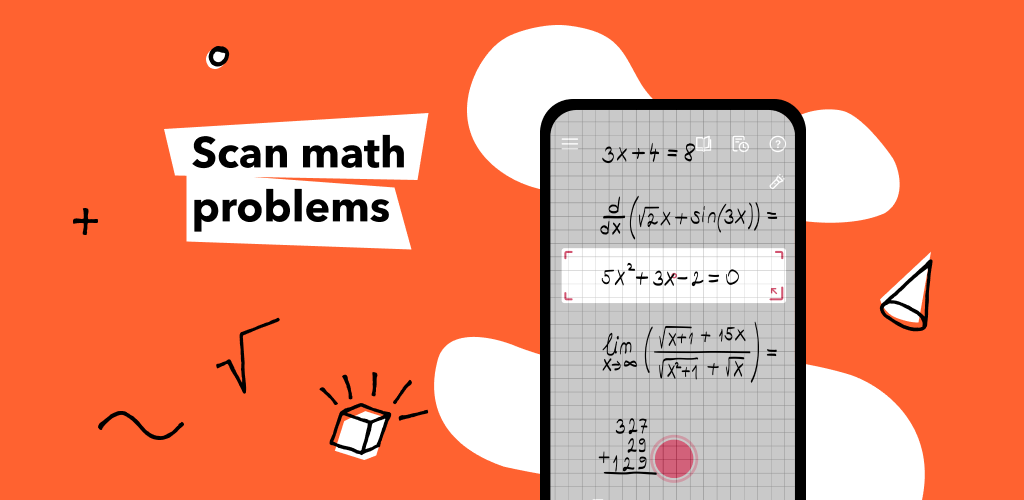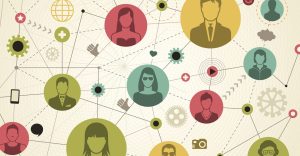
Technology over the years has become an integral part of our lives. More and more people are getting access to technology and the internet through what we call smart devices. The most popular one being, of course, the smartphone. In today’s day and age it is like we cannot get through the day if we do not have one. In 2020, 78% of the global population used a smartphone and that number is still growing.
It is not surprising that smartphones and other smart devices are so prevalent these days. They are very useful devices and can help us with a lot of things. We are connected to all our friends and family through your smartphone, you can quickly look up information, use it as a GPS, manage our calendar and so many other things. These are examples our smartphone can help us with, but then there is a whole plethora of other smart devices which help us. Think of smart home products, if we do not want to get up to turn on the light anymore we can just get some smart light bulbs and control these from our smartphone. Or we just ask a smart speaker in the room to turn the lights on or off. That this is all possible, is a truly amazing achievement of what we can do with technology. But, is it that much of a problem to get off the couch and turn on the lights if it is getting dark? Do we really need to use the GPS on our phone each time we go out of the house?

Just because we benefit from all these devices by having to do less ourselves or have to remember less, does not mean that our human capabilities also benefit. Using all these smart devices might even hurt our cognitive capabilities and make us dumber.
We have become lazy and dependent
Most of the smart features of our smart devices are reliant on Artificial Intelligence (AI). AI is used to figure out patterns in our daily behaviour and smartphones adjust their actions based on those patterns. Think of a smart thermostat that knows when we are away for work and heats up our house before we come home, or smart light bulbs that turn on when it becomes dark and turn off when we go to sleep. The AI in our smart devices tries to make our lives as simple as possible. All these smart devices take over so many tasks, we do not even have to think about them ourselves anymore. For example, every time I visit my brother who lives in another city, I still get my phone to use it for navigation. Just because I have become reliant on it and do not pay enough attention to the route to navigate there by memory. This just makes us more lazy and we probably do not even know what to do when these devices suddenly stop working. We become very dependent on them.
Are you smart or am I?
Another way AI interacts with us on our smart devices is by all the recommendations we get on our smartphones. Most people do not even think about this, but so many of the things we see on our phones we do not decide ourselves. AI’s think you may like something and then show it to us. This is something that happens everywhere on our phones. Think of all social media applications which nowadays show us a custom feed with exactly the things you like to watch (Facebook, Tik Tok, Instagram, YouTube, etc). The news feed on your phone is tailored to the news we are interested in, suggested apps are based on our currently installed applications and even the advertisements you see are all controlled by an AI which tries to show us what we want to keep us engaged. This way we all live in our own world with our own information. The companies that make the AI’s that give us recommendations do not want to give you the correct information but their only goal is engagement. In this way everyone might think of themselves as smart, but we all have different information, keeping us all dumb.

How smart is defined
For companies, it is profitable to say that the devices we own are smart. But are the devices we own actually smart? The word smart or intelligent is used to describe someone who is good at learning, understanding and thinking about things. For our smart devices one could argue that they learn new things by gathering data. This data alone does not make it smart. Just as owning an encyclopedia does not make us smart. However, our smart devices do of course more than just gathering data input. Apart from mining the data, it is analyzed and processed most of the time.
The illusion of our devices being smart
The smart devices that are around today do a pretty good job in seeming smart. The best example of a feature that truly looks smart on our smart devices is the assistant that is built into most of them, the most popular ones being, Google Assistant, Siri and Alexa. It only needs a signal word to be able to answer our questions or obey to a given command (e.g. play some music). It is already an amazing accomplishment what those AI assistants can do. However, if you have ever used one yourself you know that they are far from perfect. The companies that make these AI systems implement smart techniques to give the impression that they are smart without them actually having to be smart. If you ask a virtual assistant simple or common questions the response you get is, most of the time, very good. But, maybe if you talk a little bit too fast or you ask a certain question for the first time, it quickly starts to struggle.
The difference between our smart technology and us
In reality our so-called smart devices we carry with us do not stand a chance against humans which are actually smart. Even the fastest supercomputers in the world barely come close to the processing power that the human brain has access to. The human brain operates in a higher order of magnitude than the best supercomputers. They are also massive and take a ton of power to operate. No wonder that the AI’s on our phone have to rely on some clever tricks thought of by some actual smart people. Most data is analyzed and compared to previous data and based on the previous information it can make new decisions. The problem with calling this smart is not the device that is actually smart but the people behind it that create it. And some of the best working AI’s on your phone are not there to help us but just to keep us engaged with our phone so companies can make more money from us. You have a product made by a smart company which tricks us into thinking our device is smart only for marketing purposes.

Cognition is motivational
Some research argues that our smartphones do not impact our intelligence directly. We still have the same cognitive capability to perform certain tasks as before. But that is exactly the issue, we don’t perform them anymore. There is a lot of research that shows cognition is motivational, and let the lack of motivation be the problem smart devices cause. Or maybe if the lack of motivation does not exist, they will at least provide distraction.
In the book The Distracted Mind: Ancient Brains in a High-Tech World, the authors examine how technology affects our brain and they come to the conclusion that distraction is the result of two features of the human brain colliding: (1) the ability to conceive, plan meaningful goals and fulfill them; and (2) the ability to control our mind while achieving those goals. They state that current technology caused the first feature to surpass the second massively, leaving us with less concentration, attention and worse memory.
Smart devices are the biggest cause of distraction. The constant feed of notifications from social media, text messages, email and news sites keeps distracting us all day long and it never stops, not even when we sleep.
The lack of criticism provided by our smartphones
An important aspect of developing ourselves is criticism, or hearing a different opinion than our own. It is a sign of intelligence to listen to some other person disagree, think about their opinion and sometimes even admit that we were wrong. Social media, specifically Facebook, has made this a lot harder over the last couple of years.
The so-called “filter bubble” is widely discussed in the popular press and was first introduced by internet activist Eli Pariser. This concept describes the way the social media on our smartphones frames us in our own reality, only feeding us what we want to see. There is no room for other beliefs and opinions, because the social platform’s algorithms are focused on keeping us engaged. This constant satisfaction of receiving confirmation of our own beliefs results in a lack of criticism of our own opinion, deepening those beliefs and increasing polarisation.
Sceptics might say that social platforms already provide a broader set of views to some people than they might encounter in real life. This could be the case in the early stage, however, the algorithm will eventually provide you with an overload of “evidence” for that one single vision you picked out from that broader view. Naturally, people already tend to reject information that opposes their beliefs and only focuses on information that confirms their beliefs, this is known as “confirmation bias”. So what happens if the opposing information is not there to reject in the first place? The beliefs and biases will only settle deeper into our minds.
A “social” network
The issue, however, is not that a single person is kept dumb. Social platforms do not include “social” for nothing. While you’re being fed with all the news that fits perfectly to your desire, you come across others that share that opinion. You could follow the same politician, react to the same article and start to follow each other. This leads to clustering of like-minded people with a similar filter bubble, also known as echo chambers. This aggregation of users in like-minded clusters are now dominating the online interactions on Facebook and Twitter and leads to polarisation in society. A good example is the insurrection at Capitol Hill on January 6th, 2021 in Washington D.C.

On this day, 2000-2500 Donald Trump supporters attacked the Capitol Building trying to halt the constitutional certification of President Biden’s victory. The reason for this insurrection was the false claim that the 2020 election had been fraudulent. Noticeable were the many symbols of QAnon, a far-right conspiracy ideology, widely spread on Facebook. Even though Facebook argued that the responsibility should lay with the people that thronged the Capitol, later research showed how big the role of Facebook was in contributing to the growth of conspiracy theories.
In a report titled “Carol’s Journey to QAnon” an experimental account was set up representing a conservative mother from North Carolina. She was a Christian, had an interest in politics and parenting and followed brands like Fox News and former President Donald Trump. Despite never showing any interest in conspiracy theories, the first QAnon page showed up in her newsfeed in just five days.
These results show how astonishingly fast fake news spreads, even if a person has never shown interest in conspiracy theories before. Moreover, this shows the dangers of algorithms behind the social media apps on our smart devices. The lack of criticism and enlarging our confirmation bias does not only keep us dumb. It keeps us dumb, thinking we are smart. And that can have dangerous consequences we need to prevent.
How “smart” devices could actually make us smarter
We will never go back to the time before smart devices and that is also not something we should want. Technology is great and we should benefit from it. But how can we benefit from our smart devices? First of all, stop calling them smart. Using this smart adjective gives an incorrect reflection of something that is new and refreshing and automatically turns anything else into a dumb device. In North America and Western Europe 70 to 80 percent of all households own a smart TV, and there is not a single person under 60 years old that still thinks of a phone as an old-fashioned landline or flip phone. It is time we separate the word “smart” from all our devices we now see as default and give back the true definition of smart.
Make them actually smart
Another way to give back the true definition of smart is to actually make our devices smart. We have to make sure that devices are complements to the human brain, not substitutes. This starts with distinguishing the tasks that we can do ourselves from those we really need our devices for.

Recently, an app called Photomath has been developed. You take a photo, they solve the mathematical equation for you. Imagine all the time this would have saved you from doing your homework when you were younger. You would have had more time to play outside with your friends. Or nowadays, your online friends. But at the same time, didn’t all that homework help you in developing a basic maths understanding? Would Alan Turing and John Nash have made the discoveries they have if they were able to solve all equations with a single photograph? Smart devices and the AI behind it shouldn’t take away the base for learning. It will take away the ability to innovate and make new discoveries.
We need motivating devices, only when necessary
Instead of taking away the ability to innovate and discover, our devices should create more possibilities and motivate us. We should have apps that speed up our process, but do not do all the work for you. Moreover, smartphones should be able to know when it is time to be silent. Recent developments in smartphones have increased the possibilities for “Do Not Disturb” settings. These changes make it possible to specifically choose which apps can disturb you and which don’t for all different circumstances. For instance during work, only mails will reach you and everything else will not be shown.
A digital diet
But this is not enough, we need to change our lifestyle more fundamentally. Slowly we are starting to realize that the devices control our life and keep us dumb. Some solutions have been provided such as a digital detox once a week. But as with other addictions, this is not enough. Take people with morbid obese for example, one day of not eating per week would not be enough. It would probably help a bit, but it doesn’t tackle the cause of the problem. We would instead need a digital scale, so that we know when we are using our smartphones too much. People need to be socially disapproved of their smart device usage, so they can go on a digital diet before it is too late.

The obligation of social media for the greater good
In the end, social media will never leave us, so we need to come up with an idea to prevent ending up in our filter bubbles and the polarisation it causes. In his Ted Talk, Eli Pariser suggests we have to think about the obligations that social media have for the greater good. Instead of looking at fast spread of fake news as a content or information problem, we need to look at tit as a people problem. We need to think of platforms as spaces, as spaces shape behavior. The way we shape our platforms affects our behavior massively. We wouldn’t behave the same way in a library as we do in a bar. Similarly, we don’t behave the same way on LinkedIn as we do on Twitter. Why? Because LinkedIn reads as a workspace. We need to design our social media platforms to how we want to behave. But how?
First of all, good spaces are structured. People need structure in their daily lives, so they need it on social media as well. Second, the focus needs to move from user-friendly design to public-friendly design. Platforms should not serve individuals, but the public good. And last, the location ownership should change. Right now, the owners of social media platforms consists out of a small group of people, with the main goal of financial improvement. We should give back the ownership to the public and let us all have some input in creating the infrastructure of our social media. Only in that way we can all contribute to the diversity and tolerance of other people’s opinions.
Our smart devices as complements
We will never get rid of our smart devices, that is a fact. But it is time that we realize how these devices turn us into motivation lacking and continually distracted people. The filter bubbles created by the social media platforms falsely deepens our beliefs and tricks us into thinking we’re being smart. We need to create a society where too much usage of our smart devices is socially disapproved comparable to smoking and being overweight. Together with changing the design of our social media where the public good takes center stage. Only then will we be able to benefit from our smart devices, making them complements to our human brain.

